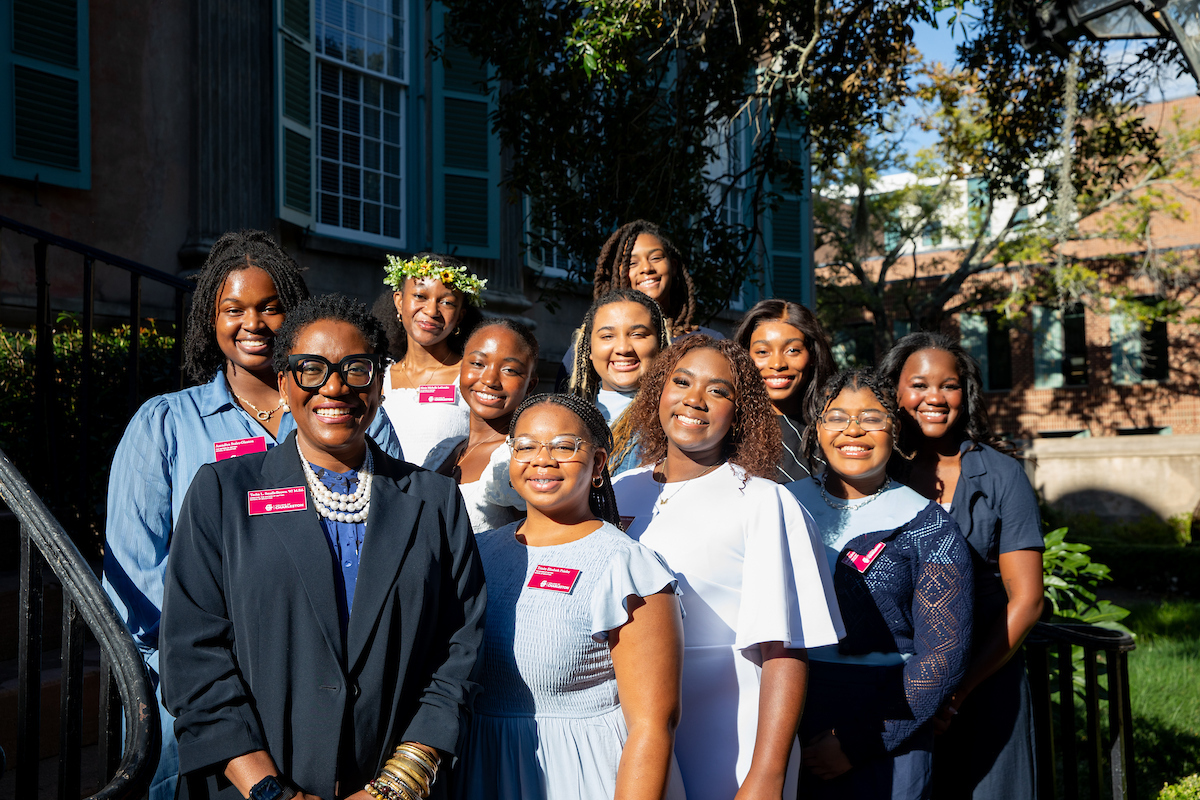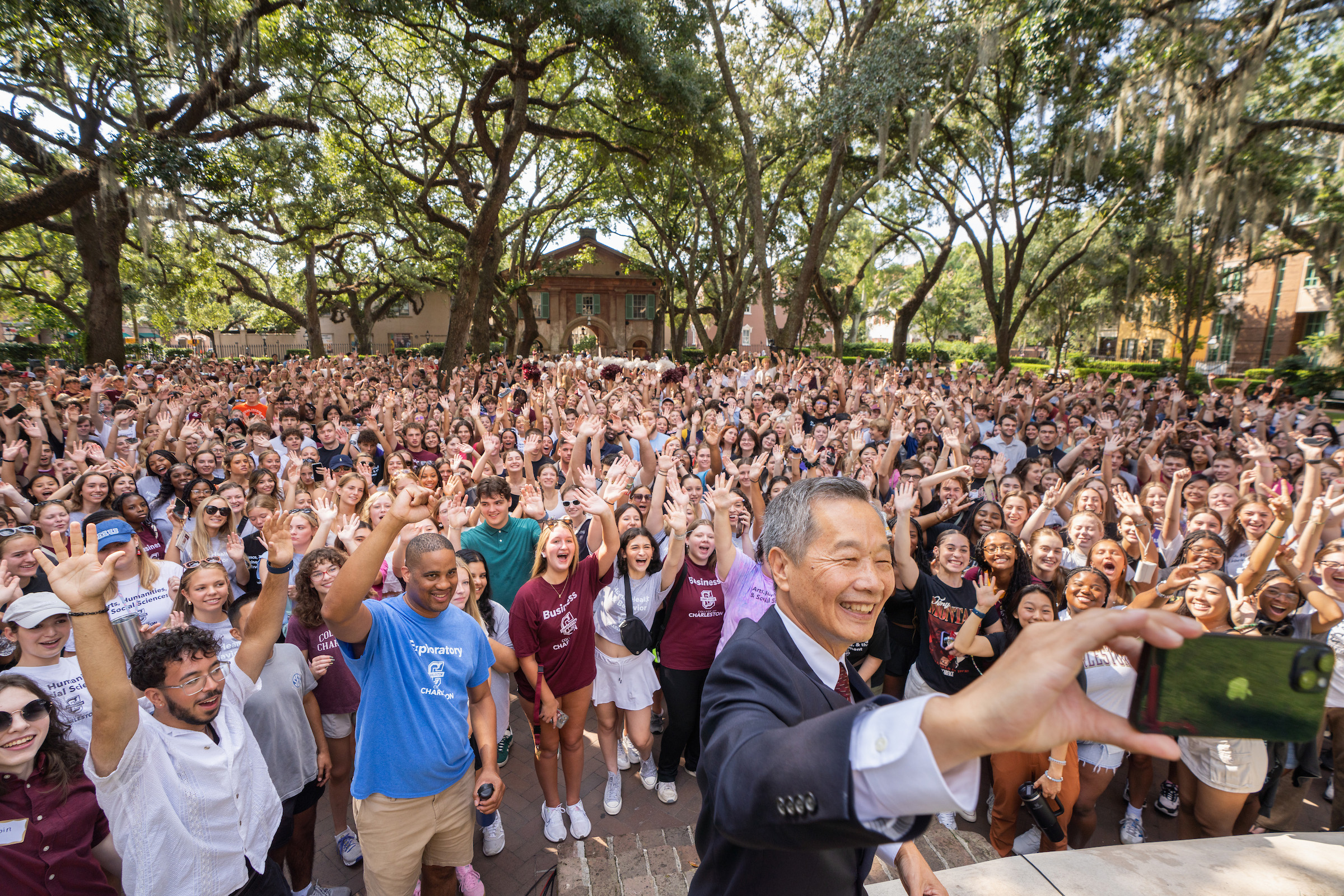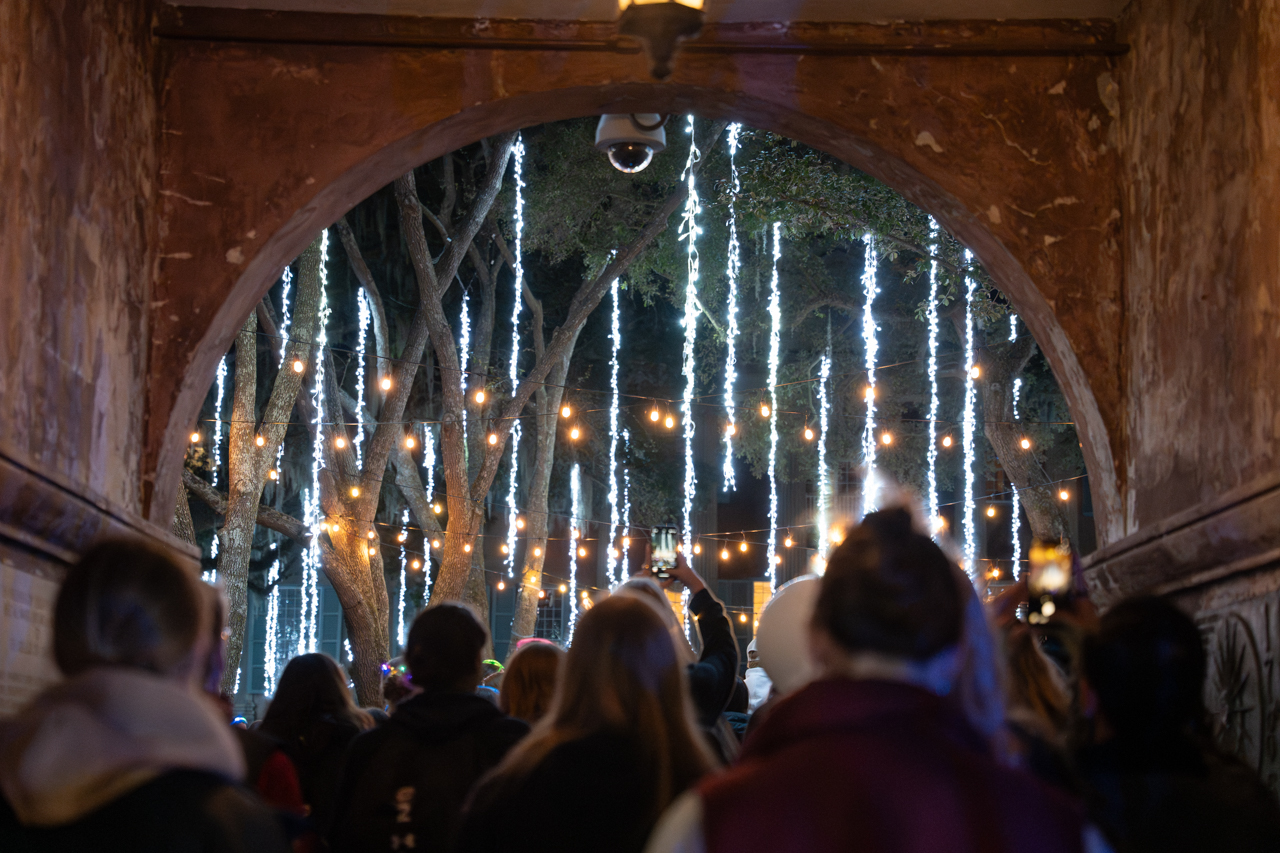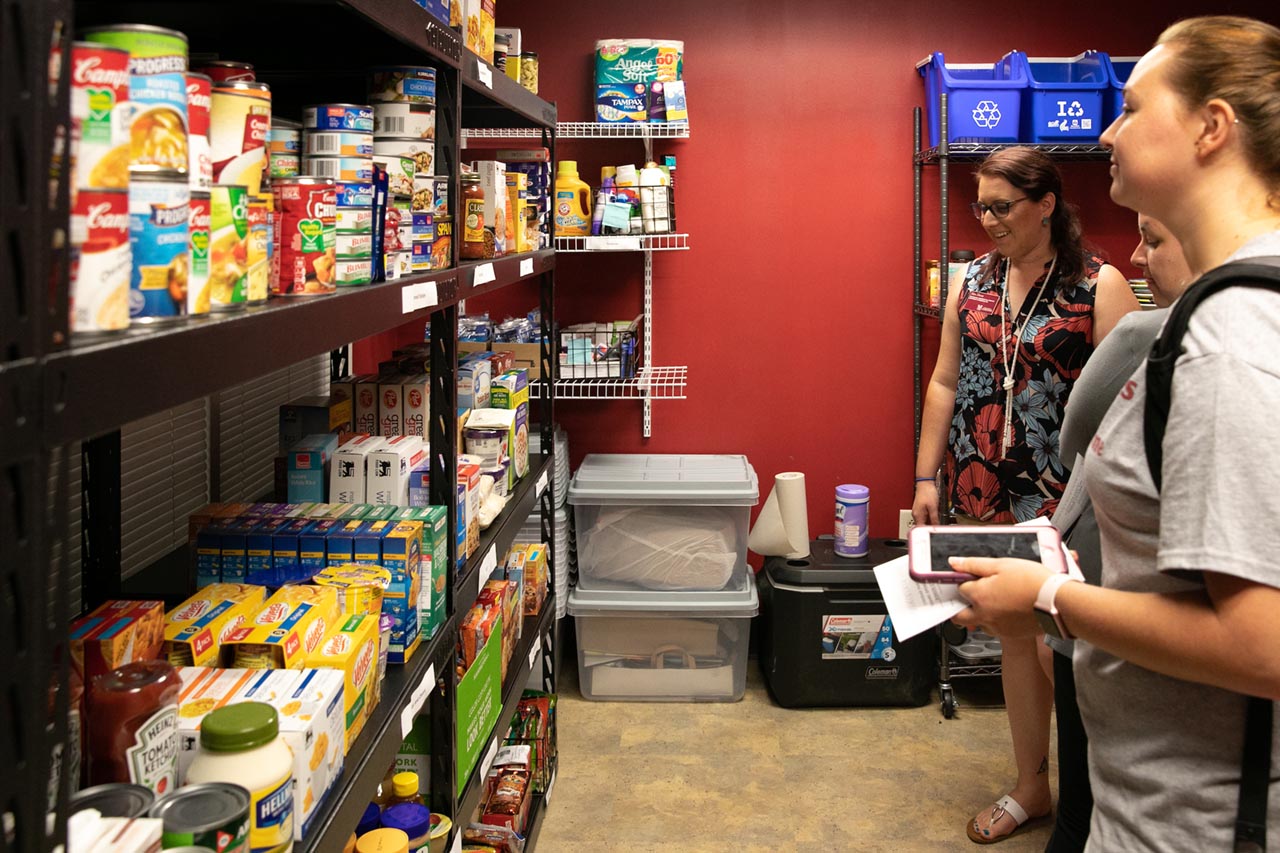The Sisters of Septima Continue the Education Legacy of Its Namesake
The Sisters of Septima program is a new initiative to support women of color majoring in teacher education.

Above (l–r): Azediya Staley-Gleaton ’24, Techa Smalls-Brown ’97, Alexis LeGendre, Adrianna Jackson, Trinity Pristley, Kiara Williams, Maya Thorpe. Mattie Riddick. Marie Attelier, Aveh Singletary and Jireh Baines.
Nationwide, teachers in public schools are not as diverse as the students they teach. While more than half of public school students are students of color, only about one in five teachers and principals share similar racial backgrounds. This gap is troubling because having teachers from diverse backgrounds benefits all students, especially students of color.
Techa Smalls-Brown ’97 is the director of a new initiative in the School of Education at the College of Charleston that aims to address this issue. The Sisters of Septima – named in honor of civil rights leader, educator and activist Septima P. Clark who was from Charleston (her birthplace is on the College campus) – is a leadership development program designed to support the growth of women of color majoring in teacher education. Students enrolled in the program receive mentorship and access to scholarships, academic support and a community of women who are passionate about teaching.
“The Sisters of Septima is an example the School of Education’s mission to educate teachers to meet the needs of our schools,” Fran Welch, dean of the School of Education, says.
The inaugural class of 2024 accepted 10 young women from across the state, including Marie Esperance Attelier, a junior majoring in elementary education. She couldn’t be more thrilled to be the program. From a young age, Attelier knew she wanted to be a teacher because of her struggles with dyslexia.
“I often felt overlooked because I wasn’t part of the top 2%,” she says. “As a Black student, I saw how the system only seemed to value kids of color if they performed exceptionally well. If you weren’t excelling, you were often pushed aside. That experience drives me as a teacher. I want to protect and uplift the 98% of kids who don’t fit into those narrow expectations. My goal is to help every student reach their full potential, even if it’s not straight As. Sometimes a B is enough, and that’s worth celebrating.”
She had two Black teachers in middle school who changed her life.
“They were tough, but they loved me fiercely and never let me settle for less than my best. What stood out to me was their high expectations. They didn’t see my dyslexia or struggles as limitations,” she says. “Their belief in me carried me through school and inspired me to become a teacher myself. I wouldn’t be who I am today without their strength, support and unwavering expectations.”
She’s grateful for the close relationships she’s gained within the School of Education and says the SOS has provided her with a safety net to navigate the rest of her college journey.
Mattie Riddick, a junior majoring in middle grades education, wants to become a teacher because of advice she got from her father.
“He was an administrator and always said it was important for students at low-income schools to see a teacher that looked like them in the classroom,” she says. “I looked back on all the years in school and noticed that I have only had one teacher that was of color, and he was a male. So, I decided that I want to be the change I needed in high school.”
The lessons Azendiya Staley-Gleaton ’24 learned from her SOS mentor was invaluable.
“Tiffany Harris, assistant professor of educational and social foundations, is one of the best teachers I had at the College, and I lucked out to have her as my mentor at The Sisters of Septima,” she says. “She gave me great advice about managing stress in the classroom, which gave me confidence during my clinicals as a student teacher.”
It’s apt that the program is named after Clark, an education pioneer. Smalls-Brown was thrilled when Clark’s family agreed to have the program bear her name.
“I wanted to name the program after Septima P. Clark because she’s been a role model for me throughout my career in education, and she exemplifies the work we’re doing in every way,” says Smalls-Brown. “Clark was not content with the way things were. She knew that through education, Black people could rise above the limitations imposed by segregation. Her work establishing citizenship schools taught literacy, self-respect and gave people the tools to fight for civil rights. These young women are continuing Clark’s legacy.”
Applications for 2025–26 open in April with the goal of accepting 12 new students in the fall. For more information, visit the SOS website.



